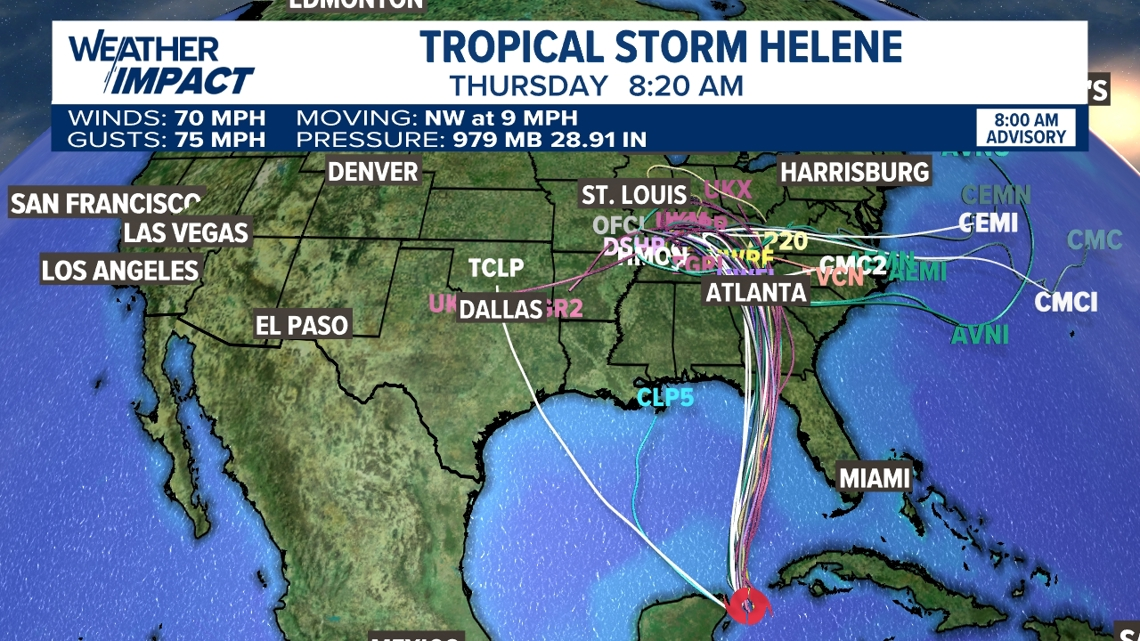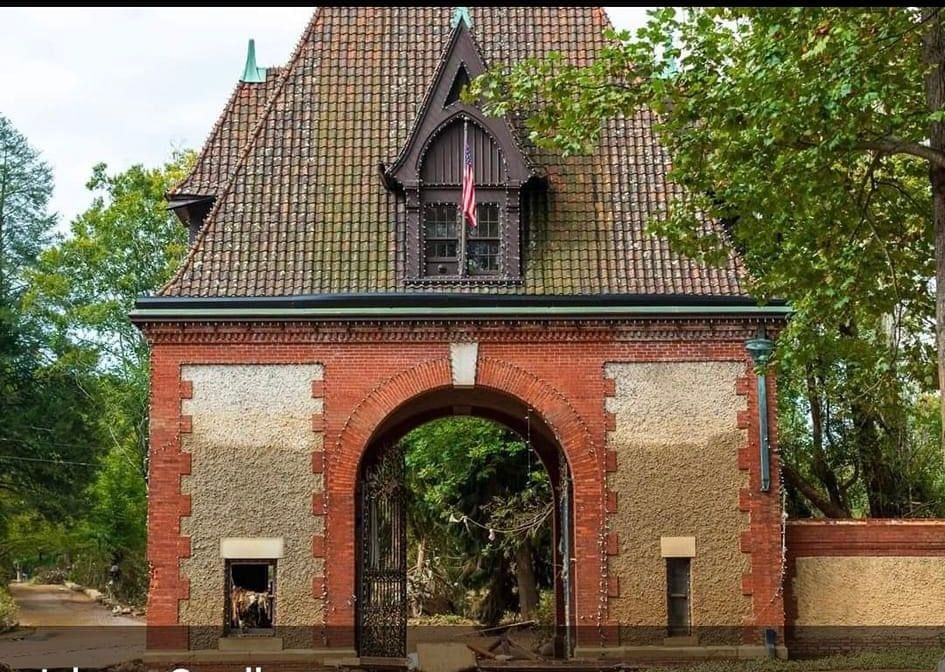Why NC was such a disaster
-
@bachophile Damn, you guys are GOOD!
-
Hindsight is 20/20 big time on this.
Normally hurricanes continue their path through the US and towards @Doctor-Phibes motherland, but this one was projected to head due north across the Florida panhandle, do a loopty-loop near TN and then head out. I saw the projected maps before it even left the gulf of mexico and admit I didn't think twice about it.
But with hindsight... a hurricane or tropical storm stalled over a mountainous area as it changes direction... recipe for disaster. The pre-hurricane rain bands, as the post says, saturated the area... then dump another 20-30 inches of rain in one day, and let it go down the streams, valleys, and other funneling functions? Disaster...
@89th said in Why NC was such a disaster:
But with hindsight... a hurricane or tropical storm stalled over a mountainous area as it changes direction... recipe for disaster. The pre-hurricane rain bands, as the post says, saturated the area... then dump another 20-30 inches of rain in one day, and let it go down the streams, valleys, and other funneling functions? Disaster...
-
I don’t think there’s any hindsight necessary. You can’t plan for, predict, and account for those one in a million type of disasters. Should homes in the Blue Ridge now be built to the same hurricane and flood proof standards as homes in Florida? That’s ridiculous. You mitigate what you can based on reasonable expectations of what may or may not occur.
-
I think you’re exactly right about how it was the mountainous terrain of the Blue Ridge that made it so much very worse. The mudslides and the veritable rivers of water carrying the momentum from being channeled down these mountains was just… Damn.
-
-
@89th said in Why NC was such a disaster:
But with hindsight... a hurricane or tropical storm stalled over a mountainous area as it changes direction... recipe for disaster. The pre-hurricane rain bands, as the post says, saturated the area... then dump another 20-30 inches of rain in one day, and let it go down the streams, valleys, and other funneling functions? Disaster...
-
I don’t think there’s any hindsight necessary. You can’t plan for, predict, and account for those one in a million type of disasters. Should homes in the Blue Ridge now be built to the same hurricane and flood proof standards as homes in Florida? That’s ridiculous. You mitigate what you can based on reasonable expectations of what may or may not occur.
-
I think you’re exactly right about how it was the mountainous terrain of the Blue Ridge that made it so much very worse. The mudslides and the veritable rivers of water carrying the momentum from being channeled down these mountains was just… Damn.
@LuFins-Dad said in Why NC was such a disaster:
@89th said in Why NC was such a disaster:
But with hindsight... a hurricane or tropical storm stalled over a mountainous area as it changes direction... recipe for disaster. The pre-hurricane rain bands, as the post says, saturated the area... then dump another 20-30 inches of rain in one day, and let it go down the streams, valleys, and other funneling functions? Disaster...
-
I don’t think there’s any hindsight necessary. You can’t plan for, predict, and account for those one in a million type of disasters. Should homes in the Blue Ridge now be built to the same hurricane and flood proof standards as homes in Florida? That’s ridiculous. You mitigate what you can based on reasonable expectations of what may or may not occur.
-
I think you’re exactly right about how it was the mountainous terrain of the Blue Ridge that made it so much very worse. The mudslides and the veritable rivers of water carrying the momentum from being channeled down these mountains was just… Damn.
I meant for hindsight, next time there is a Cat 4+ hurricane heading due north, then projected to do a loopty-loop over TN before the atmosphere pushes it east back over the atlantic... it's that last loop/stall part that is not normal for most hurricanes, so next time we see that projected... But yeah I don't think folks need to change how they build in the mountains, except maybe if you're in a flood zone of one of the river/streams...

-
-
-
The rest of that must have went into the ether.
What I said was that hurricanes are the most unpredictable of storms. They stop, they speed up, slow down and I've even seen them turn in circles down in the Gulf.
Other than not building anything expensive right on the shore and building to hurricane code within 50 miles of the shore, I'm not sure there is a lot more we can do.
-
The youngest victims...
https://nypost.com/2024/10/04/us-news/twin-babies-youngest-known-victims-of-hurricane-helene/
-
https://www.nytimes.com/2024/10/03/climate/north-carolina-homes-helene-building-codes.html
Over the past 15 years, North Carolina lawmakers have rejected limits on construction on steep slopes, which might have reduced the number of homes lost to landslides; blocked a rule requiring homes to be elevated above the height of an expected flood; weakened protections for wetlands, increasing the risk of dangerous storm water runoff; and slowed the adoption of updated building codes, making it harder for the state to qualify for federal climate-resilience grants.
Those decisions reflect the influence of North Carolina’s home building industry, which has consistently fought rules forcing its members to construct homes to higher, more expensive standards, according to Kim Wooten, an engineer who serves on the North Carolina Building Code Council, the group that sets home building requirements for the state.
and
in 2009 and 2010, lawmakers from the states mountainous western region wanted statewide rules to restrict construction on slopes with high or moderate risk of landslides. Their legislation failed in the face of pushback from the homebuilding and real estate industries.
